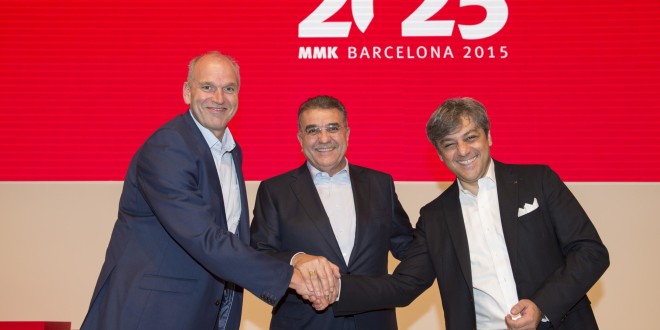On Friday, SEAT presented its roadmap until 2025. At a meeting to address the brand’s 550 market executives and directors where it operates, SEAT Board of Directors Chairman Dr. Francisco Javier García Sanz and SEAT’s new Executive Committee Chairman Luca de Meo announced the company’s strategy for the next ten years to achieve the goal of sustainable profitability. The three pillars which SEAT is going to focus on will be developing models in growing segments with a high profit margin by applying the successful Leon formula; prioritising customer satisfaction and being the most attractive employer in the automotive industry in Spain.
At the presentation, Dr. Francisco Javier García Sanz reaffirmed the Volkswagen Group’s commitment to SEAT: “Now is the time to act with a view to the medium and long term, regardless of recent weeks’ news. The Volkswagen Group has full confidence in our plan for the future and it is perfectly integrated in their strategy. The models we have announced for the next two years will reach the market as scheduled and will contribute to SEAT’s sustainable growth. And they are just the first step of this strategy”.
Likewise, Luca de Meo, who as of 30 October, replaced Jürgen Stackmann at the helm of SEAT, emphasised the contribution made the company’s workforce to the results obtained in recent years: “I want to acknowledge the effort and dedication of all SEAT employees over the last few years. From this day forward, I join SEAT with the same passion and commitment to the brand that you have demonstrated. SEAT has the potential to design and produce high-quality cars. We work consistently, we are passionate, fast, flexible and we have the technology. I am convinced that the strategy we are presenting today will be a huge success”.
Adaptations for the new platform
At the meeting, the company’s top management also presented the efficiency programme, called LEAP, to be applied over the next two years to protect the company’s investment schedule to renew the product line-up and continue to strengthen the brand. In this regard, SEAT will begin to allocate investments to adapt the Martorell plant’s Line 1, where the Ibiza range is produced, to a new platform. Work will be carried out in the Bodywork facility between late December and mid-January, which will cause interruptions to Line 1 and the non-renewal of around 100 temporary placement contracts. This will be in addition to the 100 who were recruited last summer to cover holiday leaves on the Q3 line, whose contracts terminate at the end of this year.
The company is on track to launch four new models in the next two years; the first, a compact SUV, is expected in the first half of 2016 and will signal the brand’s debut in this segment.
The programme, which is expected to generate annual cost savings of around 100 million euros, will also enable the company to streamline processes, eliminate any expenditure that does not affect the company’s core business operations and focus on value-adding activities.
The main measures of the efficiency programme include, among others, the improvement of the company’s cost structure and the implementation of measures to review logistics, manufacturing and administrative processes and to reduce energy consumption. In addition, the plan includes revising costs on outsourced services, sponsorships, travel and events without affecting the expenses associated with new products.

